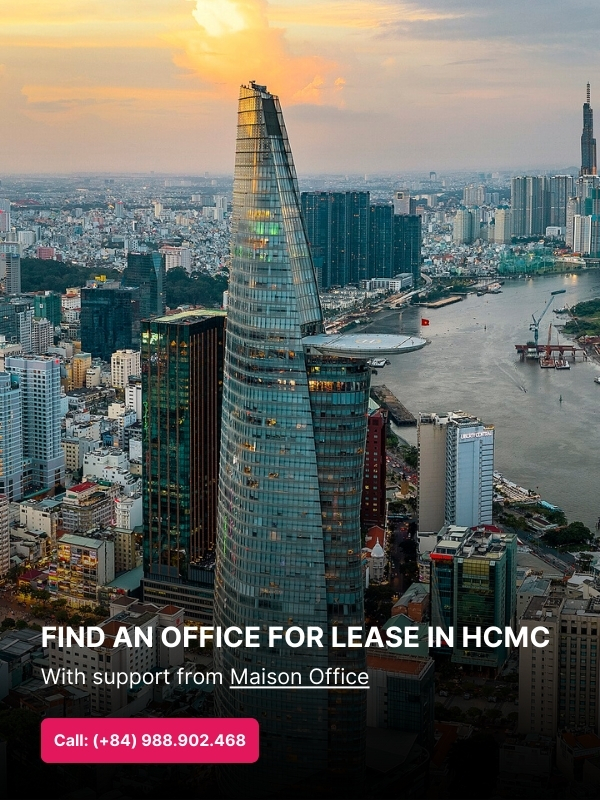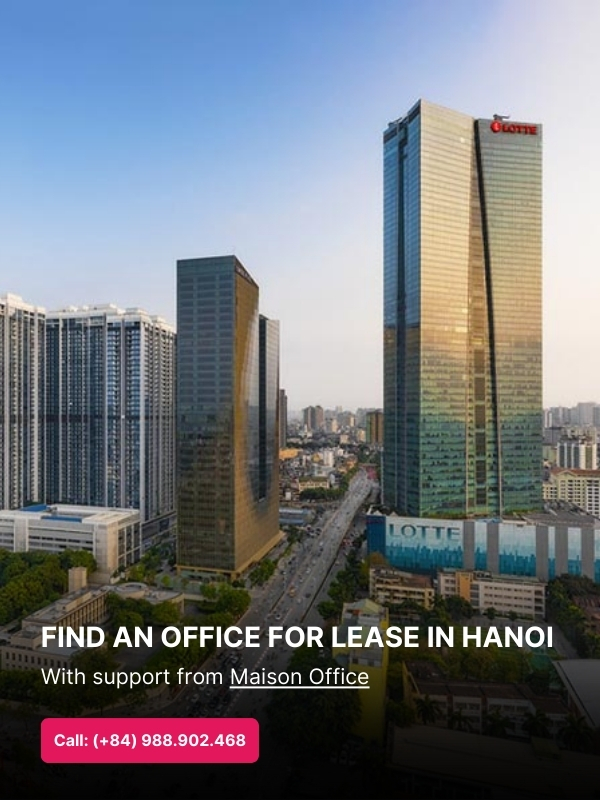Legal framework for foreign investment in Vietnam

Thanks to its stable economic growth, competitive labor costs, and proactive government policies, Vietnam continues to be a strategic destination for foreign direct investment (FDI). This article explores the current FDI landscape, provides a comprehensive overview for foreign investors looking to enter or expand their presence in Vietnam.
 |
 |
Table of Contents
Current FDI inflow figures
The Law on Foreign Investment in Vietnam, specifically Law No. 61/2020/QH14, continues to shape the country’s appeal as a top destination for foreign investment in Vietnam. Effective since January 1, 2021, this legislation has streamlined investment procedures and offered incentives, fueling impressive FDI inflows. As of March 2025, Vietnam recorded over $6.9 billion in FDI in the first two months alone—a 35.5% surge year-on-year, according to the Foreign Investment Agency. This figure reflects the law’s success in attracting capital, with manufacturing accounting for nearly 78.5% of inflows in recent years, followed by real estate and technology sectors.
The Law on Foreign Investment in Vietnam supports diverse investment forms – such as wholly foreign-owned entities and joint ventures—while ensuring legal protections for investors. This framework has positioned Vietnam as a manufacturing hub, with 2023 seeing a record $23.5 billion in FDI disbursements.

Rights and obligations of foreign investors
The Law on Foreign Investment in Vietnam, notably Law No. 61/2020/QH14 effective from January 1, 2021, establishes a robust framework to protect and empower foreign investors entering Vietnam’s dynamic market. This legislation ensures that foreign investment in Vietnam thrives by balancing investor rights with clear obligations, fostering a transparent and attractive business environment.

Protection of assets and investments from expropriation
Under the Law on Foreign Investment in Vietnam, foreign investors enjoy strong safeguards against expropriation. Article 9 of Law on Investment guarantees that legitimate assets—whether capital, property, or intellectual property—cannot be nationalized or seized through administrative measures. In rare cases where assets are requisitioned for national security or public interest, investors are entitled to fair compensation as mandated by law. This protection builds confidence for businesses engaging in foreign investment in Vietnam, ensuring their investments remain secure.
The law grants foreign investors significant autonomy in managing their operations. According to the Law on Enterprises 2020 and the Law on Foreign Investment in Vietnam, investors can freely conduct business in sectors not prohibited by law, make independent investment decisions, and establish operational structures. Regarding labor, investors have the flexibility to recruit both domestic and foreign workers, adhering to Vietnam’s Labor Code. They can also form labor unions and set wages, empowering businesses to tailor their workforce to specific needs while expanding foreign investment in Vietnam.
Lear more: Vietnam Labor Law for Foreigners: Work Permits & Contracts

Financial rights: Transfer of profits, access to credit, and capital flow
Financial flexibility is a cornerstone of the Law on Foreign Investment in Vietnam. Foreign investors can freely transfer profits, capital gains, and other lawful earnings abroad in VND or foreign currency, provided tax obligations are met, as outlined in Article 21. The law also ensures access to credit from local and international sources, enabling investors to finance projects efficiently. With no restrictive capital flow policies, Vietnam supports seamless repatriation of funds, making foreign investment in Vietnam a compelling choice for global businesses.

Conditional and restricted investment sectors
Under the law on foreign investment in Vietnam, certain sectors are subject to specific conditions or outright restrictions for foreign investors. These regulations are designed to align with Vietnam’s international commitments, including those under the World Trade Organization (WTO), Comprehensive and Progressive Agreement for Trans-Pacific Partnership (CPTPP), and EU-Vietnam Free Trade Agreement (EVFTA).
Conditional investment sectors refer to industries where foreign ownership is allowed, but subject to licensing, equity caps, or special operational conditions. Examples include:
- Telecommunications with network infrastructure (max 49% foreign ownership)
- Transportation and logistics
- Advertising services
- Education and training
Financial services (banking, insurance, securities)
Investors interested in these sectors must undergo a more rigorous review process and, in some cases, form joint ventures with Vietnamese partners.
Restricted or prohibited sectors include industries that affect national defense, social order, or cultural heritage. Foreign investment is either strictly limited or entirely banned in areas such as:
- Military weaponry production
- Press and news agencies
- Fishery exploitation in internal waters
- Certain types of real estate services in sensitive areas
Understanding these sector-specific rules is essential for any foreign investor planning market entry. Navigating the foreign investment in Vietnam landscape successfully requires legal due diligence and often consultation with local experts.
The Vietnamese government regularly updates the list of conditional and restricted sectors through official decrees, reflecting changes in strategic priorities and global integration commitments.
Lear more: How to Set Up an FDI Company in Vietnam: Guide 2026
Procedures and steps for foreign investment in Vietnam
Understanding the correct procedures is essential for any foreign entity planning to enter the Vietnamese market. The law on foreign investment in Vietnam sets out a clear, structured process for establishing a foreign-invested enterprise (FIE), ensuring transparency and legal certainty for international investors.

Identify the investment sector and business structure
Foreign investors must first determine whether their intended business activity falls under the list of permitted, conditional, or restricted sectors. Based on this, they can choose the appropriate legal entity—typically a 100% foreign-owned company or a joint venture.
Lear more: Types of Companies in Vietnam: A Guide for Foreign Investors
Apply for an Investment Registration Certificate (IRC)
This is a mandatory step under the Investment Law. The IRC outlines the project’s objectives, scale, capital contribution, duration, and investor information. The process usually takes 15 working days, assuming the project is not in a conditional sector.
Obtain an Enterprise Registration Certificate (ERC)
Once the IRC is issued, the investor must register the enterprise with the Department of Planning and Investment (DPI) to obtain the ERC. This certificate officially establishes the legal entity in Vietnam.
Open capital bank account & Contribute investment capital
Foreign investors are required to open a capital bank account in foreign currency to transfer the charter capital into Vietnam. The capital must be fully contributed within 90 days from the date of ERC issuance, unless otherwise stated.
Apply for sub-licenses (if applicable)
Depending on the business sector, additional licenses may be needed—for example, trading licenses for retail, or permits for education, healthcare, and logistics.
Fulfill post-licensing obligations
After setup, companies must complete tax registration, labor declarations, social insurance, and compliance procedures required by the Vietnamese government.
Lear more: Vietnam’s Foreign Contractor Tax (FCT)
Dispute resolution and protection of foreign investors
One of the most critical aspects of the law on foreign investment in Vietnam is its commitment to protecting the legal rights and interests of foreign investors. Vietnam’s legal system provides multiple mechanisms for dispute resolution, helping to build investor confidence and reduce perceived legal risks.
Dispute Resolution Mechanisms: Under current laws, disputes involving foreign investment in Vietnam can be resolved through:
- Negotiation and mediation: These are encouraged as the first steps to avoid prolonged litigation.
- Vietnamese courts: Investors may bring disputes to local courts, especially when the issue involves contracts with Vietnamese parties or land-related matters.
- Arbitration (domestic or international): Vietnam recognizes arbitration as a valid form of dispute resolution. Many foreign investors choose international arbitration centers such as the Singapore International Arbitration Centre (SIAC) or the Vietnam International Arbitration Centre (VIAC).
- Dispute resolution under international treaties: For investors from countries that have bilateral investment treaties (BITs) or are part of trade agreements like the CPTPP or EVFTA, disputes may be escalated to international arbitration under those treaties’ frameworks.
Legal Protections for Foreign Investors: The law on foreign investment in Vietnam guarantees the following protections:
- No unlawful expropriation: Investors’ assets are protected from seizure or nationalization without lawful procedures and full market-based compensation.
- Equal treatment: Foreign investors are treated no less favorably than local investors, in accordance with international commitments.
- Right to transfer assets: Foreign investors are entitled to remit profits, capital, and other lawful assets abroad after fulfilling tax and financial obligations.
- Transparent legal framework: Investment regulations and procedures are being continually modernized to align with global best practices and reduce administrative burdens.
These protections are critical in encouraging sustainable foreign investment in Vietnam, particularly in high-value sectors such as manufacturing, technology, and infrastructure.
Lear more: Company Registration in Vietnam: Step-by-Step Guide 2026
Percentage of foreign ownership allowed in different sectors
The percentage of foreign ownership allowed varies significantly depending on the industry and whether the sector is considered open, conditional, or restricted under the law on foreign investment in Vietnam. This framework is essential for foreign investors to assess market entry strategies, partnership models, and legal compliance.
Below is a breakdown of common sectors and their respective foreign ownership limitations:
| Sector | Maximum foreign ownership |
| Manufacturing (general) | Up to 100% |
| E-commerce and tech services | Up to 100% (subject to data security laws) |
| Real estate services (non-land ownership) | Up to 100% (excluding land use rights) |
| Advertising | Up to 99% (via joint venture) |
| Education and training | Up to 100% (must meet quality conditions) |
| Logistics and freight forwarding | 49% – 100% (depends on sub-sector) |
| Distribution & retail (with conditions) | Up to 100%, subject to business license |
| Banking & finance | Typically capped at 30% per investor |
| Telecommunications with infrastructure | Max 49% |
| Travel agencies serving inbound tourists | Up to 100% |
| Cinema, media, and press | Not permitted or tightly restricted |
These limits are enforced to balance foreign capital inflow with national interests and compliance with trade commitments under WTO, CPTPP, and EVFTA.
It’s important to note that Vietnam’s government continues to gradually open sectors as part of its global integration roadmap. However, any increase in foreign equity cap typically requires:
- Government approval or Prime Ministerial decision,
- Fulfillment of licensing conditions,
- In some cases, forming a joint venture with a Vietnamese partner.
Foreign investors are strongly advised to consult the latest decrees and circulars under the law on foreign investment in Vietnam, or seek legal support to avoid delays in licensing and ownership transfer issues.
In summary, the legal framework for foreign investment in Vietnam in 2026 offers a clear, transparent, and increasingly open environment for global investors. By understanding the regulatory landscape and complying with the law on foreign investment in Vietnam, foreign businesses can unlock sustainable opportunities in one of Asia’s most dynamic markets.
Navigating Vietnam’s investment laws is only the first step—finding a strategic business location is just as important. Let Maison Office, your trusted commercial leasing agent in Vietnam, assist you in securing the ideal office for lease in Ho Chi Minh City or office for lease in Hanoi to support your expansion.




